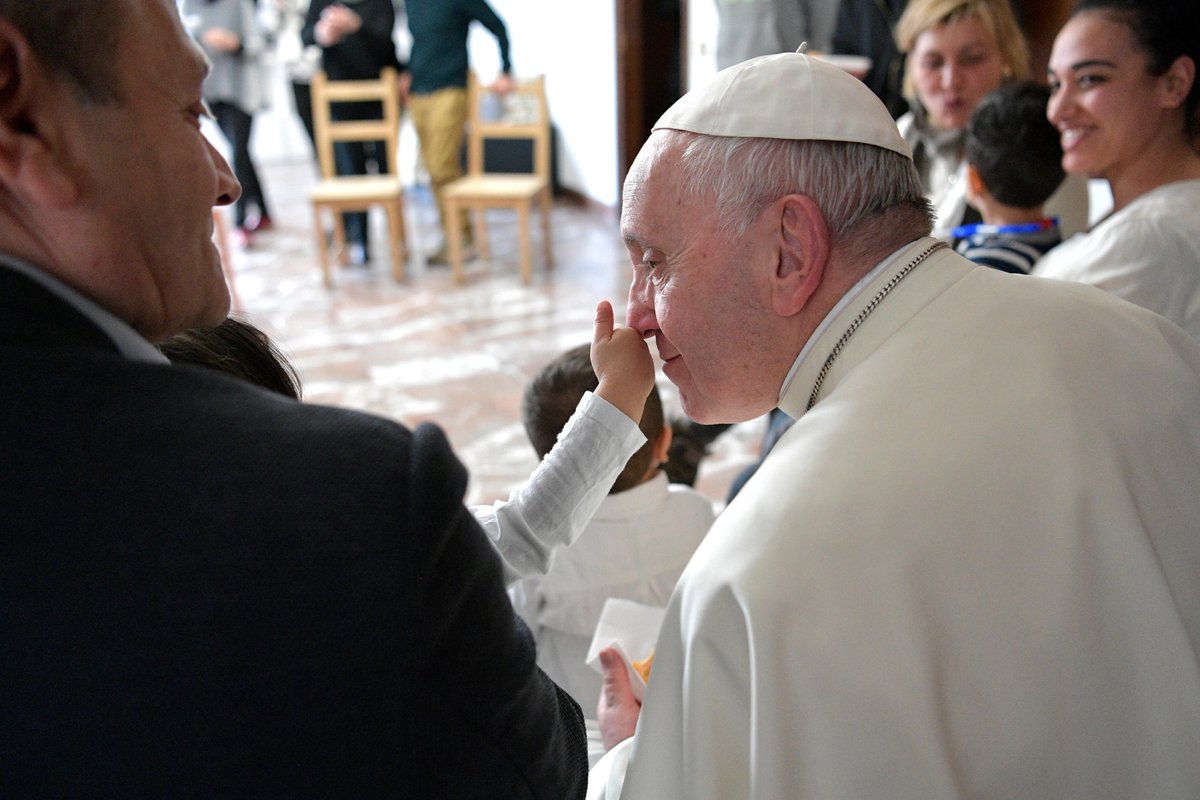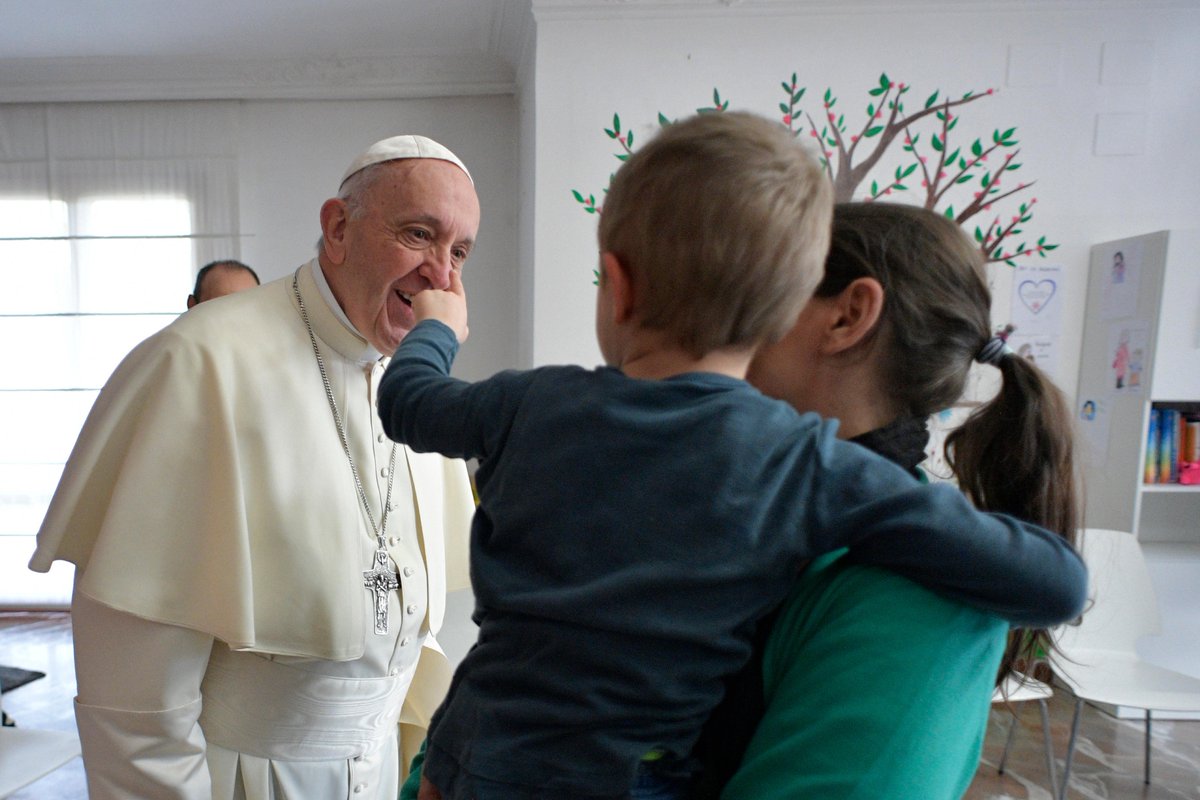In Surprise ‘Mercy Friday’ Visit, Pope Visits Imprisoned Mothers and Their Children
Leda’s House allows women to be rehabilitated while continuing to care for their children with supervision.

ROME — On Friday, Pope Francis continued his surprise “Mercy Friday” initiative with a visit to a home that keeps children with their imprisoned mothers, so that they do not have to be separated.
Called “Leda’s House,” the home allows women who might have otherwise been imprisoned or put under house arrest for minor crimes to be rehabilitated while continuing to care for their children with supervision.
Located in the EUR neighborhood of Rome, the house opened one year ago and is the first of its kind in Italy. It currently houses five young mothers, between 25 and 30 years old, and their children. Most come from Rome, though one is from elsewhere in Italy and another is from Egypt.
According to a Vatican press release March 2, the women, children and staff of the home all greeted Pope Francis warmly. He spent some time speaking with the women and children before giving the kids giant chocolate Easter eggs.
According to the Vatican, the gift was “welcomed with great joy by the children, who invited him to have a snack with them.”


The women shared their appreciation of being able to raise their children, despite the challenges. The Pope also left some gifts for the women, including a signed parchment to remember his visit.
During his visit, Francis was welcomed by Lillo Di Mauro, the head of the overseeing governmental department, along with the head of “Leda’s House,” who both highlighted the intense difficulties of children whose parents are imprisoned.
To avoid embarrassment, the children may make up stories about their incarcerated parents, they said, or they may become “aggressive and unmanageable,” although they are not bad children.
“The stay in the structure,” according to the Vatican’s press release, “allows mothers to accompany and take their children back to school and to carry out activities useful for learning a profession, in view of future reintegration into the world of work and society.”
The women are able to continue living in a home environment and raise their children, while accompanied by staff and educators.
Pope Francis’ visit to “Leda’s House” is a continuation of his “Mercy Friday” custom, which he began during the Jubilee of Mercy in 2016.
Originally planned once per month for the duration of the jubilee year, the Pope has continued these visits as a means of practicing the spiritual and corporal works of mercy. He has met with refugees, children, women freed from sex trafficking and the terminally ill, among others.
- Keywords:
- mercy fridays
- pope francis
- works of mercy















